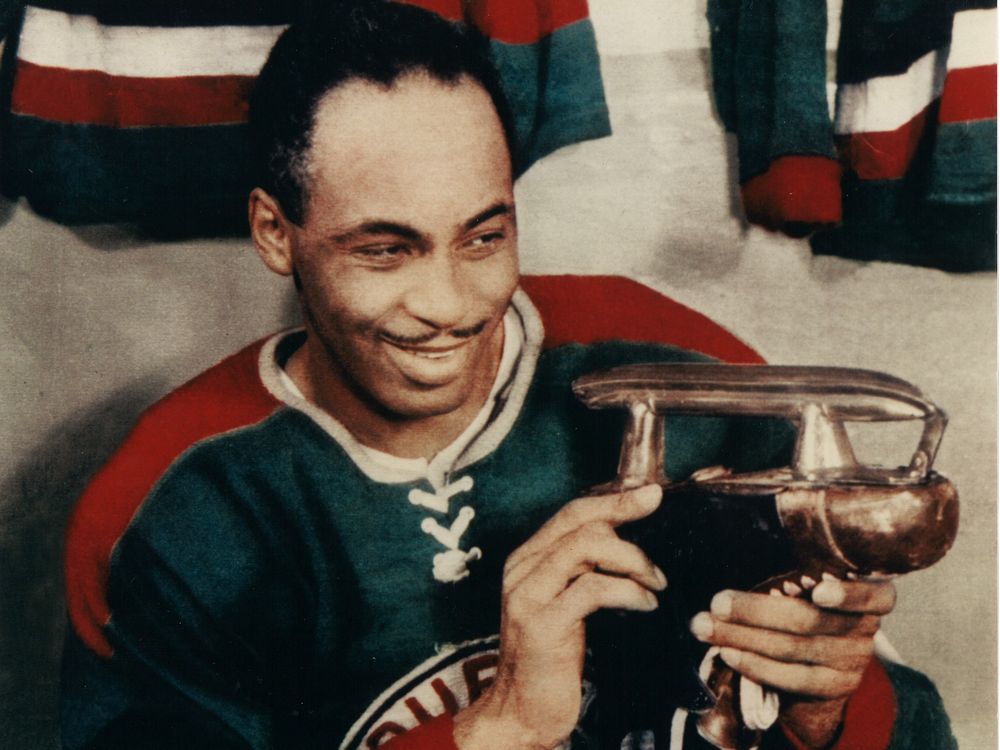
Black Canadian athletes who set the tone for future generations
By Rebecca George, March 5 2020 —
Often when acknowledging Black pioneers in sports, athletes such as Jackie Robinson, Muhammed Ali and Jesse Owens come to mind. Black Canadian athletes are scarcely remembered or talked about, yet they are important for both the Black community and Canadian history as a whole.
Being a successful athlete takes a lot of perseverance and determination and despite Black athletes’ exceptional talents, there were barriers to their success. Regardless, these Black men and women endured and in doing so they were able to clear the way for future Black athletes.
One such example of a Black Canadian athlete breaking barriers was Herb Carnegie, considered the first Black Canadian hockey star. Carnegie was an athlete who played exceptionally well in the minor leagues, yet was never allowed to play professional hockey due to his race. The then-owner of the Toronto Maple Leafs, Conn Smythe, watched Carnegie play and allegedly said “I’ll give $10000 to anyone who can turn Herb Carnegie white.”
At the time, no Black hockey players were playing in the NHL, but in 1941, Herb Carnegie teamed up with his brothers to form the first all-black minor hockey team, the Ankerite Bisons.
Carnegie persevered through many trials and tribulations in his hockey career around the same time Jackie Robinson broke the MLB’s colour barrier. Carnegie thought he would be next to break barriers but in the NHL, however, he was shattered to find out he would not be signed.
“The most devastating thing to me was knowing that players on my team were getting the opportunity whose record wasn’t as good as mine,” said Carnegie, according to The Guardian. “Which clearly showed discrimination and racism of the highest order. It was losing faith in humanity you might say.”
Another Black Canadian trailblazer was Raymond “Ray” Lewis. He made history in 1932, being the first Canadian-born Black athlete to win an Olympic medal as a part of the 4×400 metre relay team. Likewise, three-time Olympian Harry Jerome broke the colour barrier, as he was the first Canadian-born athlete to hold an official world track record in the 220-yard dash. He went on to beat another six world records. Both athletes faced a lot of racism in their time, yet continued to do well in a society that didn’t welcome them.
Systemic racism made it difficult for these athletes to compete, yet these great athletes left their legacies behind. Inspired by his exclusion from hockey, Herb Carnegie opened up the Future Aces Ice Hockey School in 1955, which taught children how to play hockey and advocated for youth empowerment and responsible citizenship through his 12-point philosophy, Future Aces Creed. Jerome would promote participation in sport for all Canadians.
The inclusion of Black Canadians in sports is not limited to men. Angela James, the “Wayne Gretzky of women’s hockey,” would become one of the first three women to be inducted into the International Ice Hockey Federation Hall of Fame. James was also the first openly gay player and the second Black athlete to be inducted into the Hockey Hall of Fame. James was able to endure a lot of discrimination and racism, yet was able to become one of the Black pioneering athletes of today. Similarly, Barbara Howard was the first female Black athlete to represent Canada in an international competition at the British Empire Games in 1938. Howard was inducted into the BC Sports Hall of Fame and Canada’s Sports Hall of Fame.
The involvement of Black athletes in Canadian sports is impactful for future athletes. In the past, Black people were unable to participate in Canadian sports, or were discouraged and discriminated against. These trailblazers have cleared the path for future athletes by showing them that barriers of all kinds, including race, can be overcome and that athletes should not feel restricted by these barriers.
